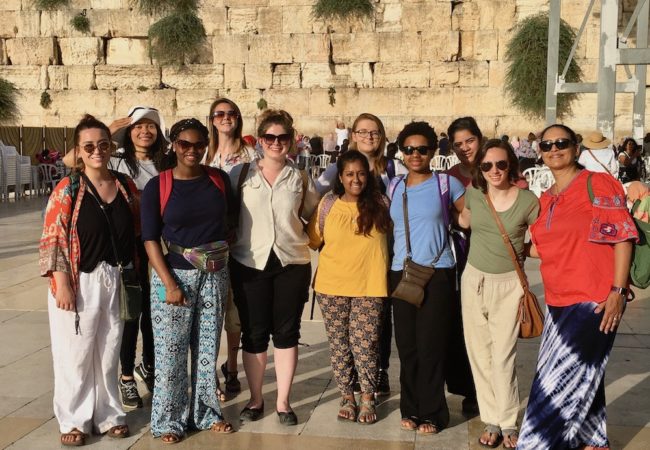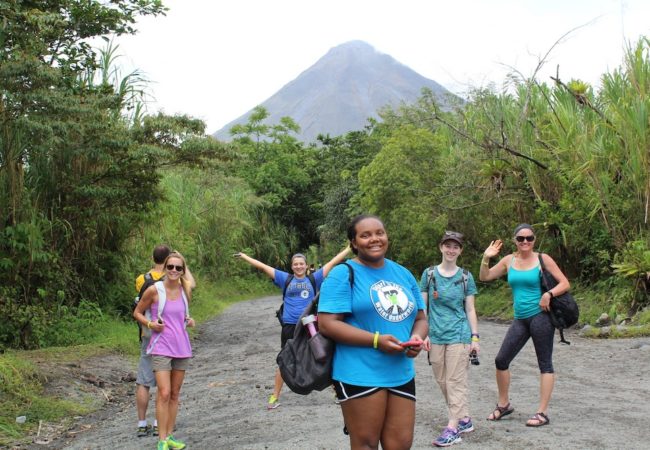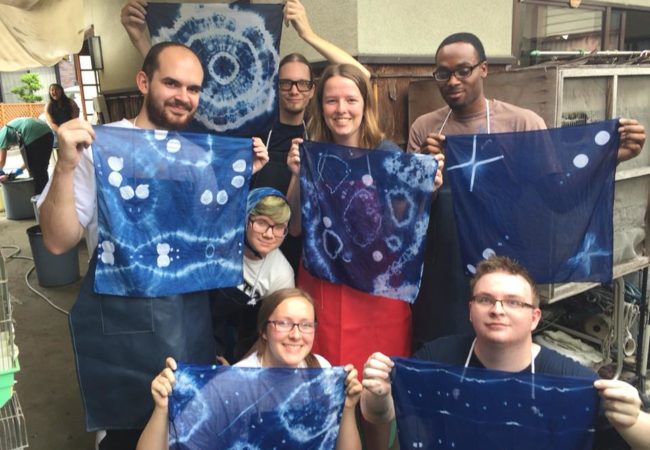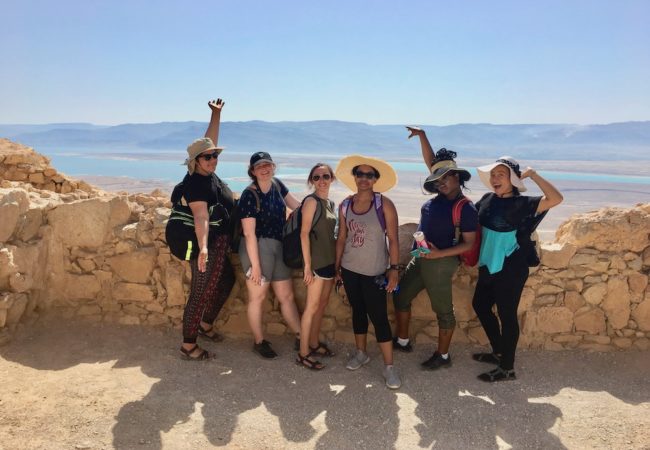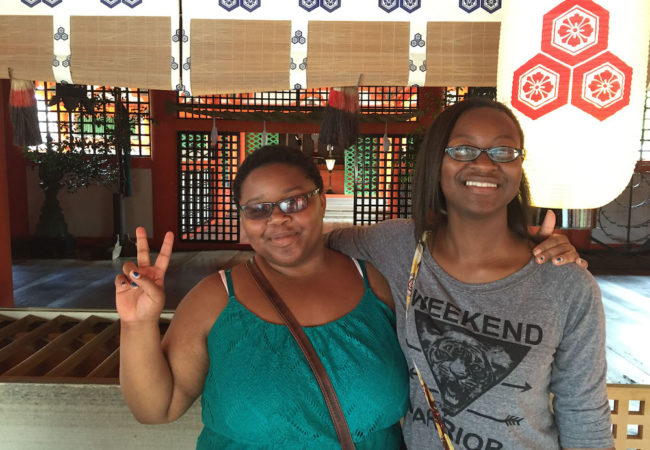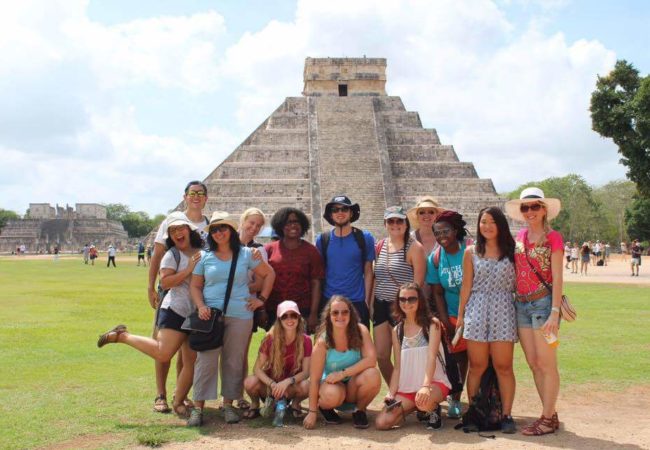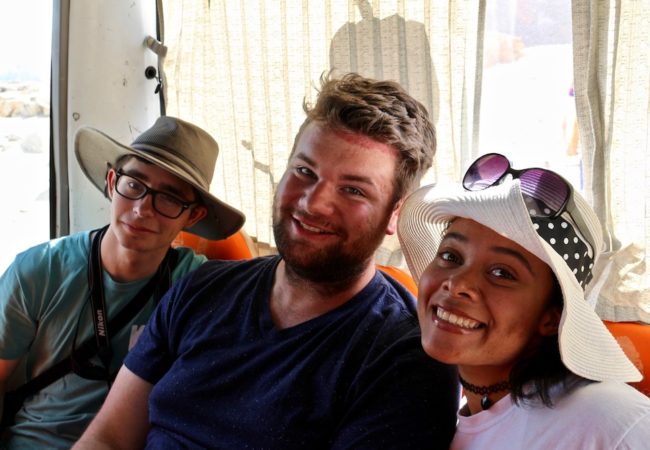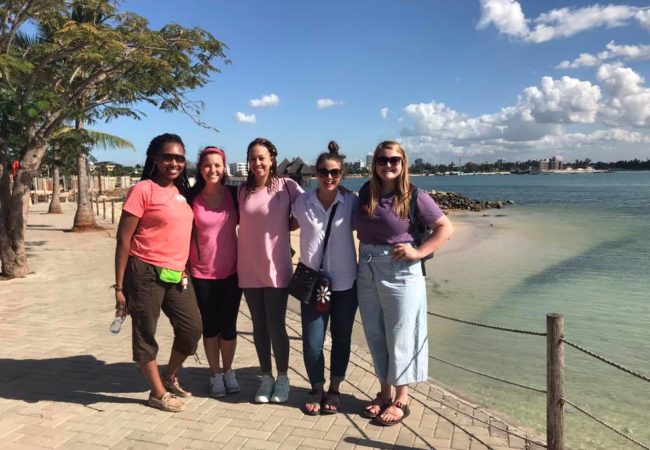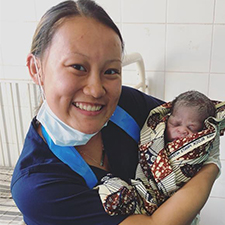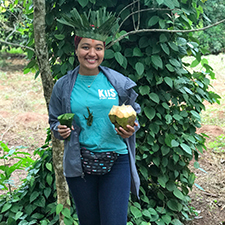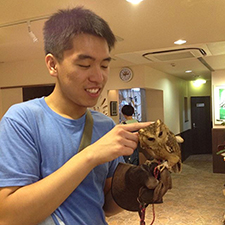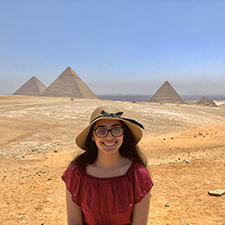Getting Started
KIIS believes everyone should have the opportunity to participate in a study abroad program.
We are dedicated in our support of diversity, equity, and inclusion by working to increase awareness, accessibility, and promoting an inclusive community to celebrate everyone from all racial groups, ethnicities, minorities, identities, and religions to be part of the KIIS community here and abroad.
KIIS Initiatives to Support Diversity, Equity, & Inclusion
Promoting an International Experience for All
-
- KIIS recognizes the importance of high-quality education abroad programs being available to students from all diverse backgrounds. Our goal is to promote multi-cultural growth and understanding. We encourage critical and creative thinking to help all students better understand the wider world and develop personal and professional skills for lifelong enrichment.
-
- KIIS is a faculty-led, non-profit organization driven by the dedication and support of our faculty from KIIS consortium-members institutions to provide all students exceptional and affordable academic programs. KIIS actively promotes and supports the representation and expression of different racial and ethnic groups, minorities, gender identities, and religions. Our organization embraces multicultural understanding, flexibility and respect, and seeks to provide an equitable and inclusive environment for all to enjoy the benefits of study abroad.
KIIS Diversity & Inclusion Abroad Scholarships
-
- KIIS recognizes and provides financial scholarship support to students from underrepresented populations including (but not limited to) cultural, first-generation college students, age, gender, sexual orientation, disability, students with a history of overcoming adversity, military, ethnic, religious, or racial identities. We encourage you to review the KIIS scholarship opportunities here.
KIIS Disability Accommodations
-
- KIIS strives to make every reasonable effort to provide encouragement, support, and accommodations to program participants with special needs or disabilities. We encourage applicants to review further information here.
KIIS Program Directors & Faculty
-
- KIIS study abroad programs are led and taught by Program Directors and Faculty from KIIS consortium-member institutions. The program directors lead and teach on the programs, and are a primary source of assistance and guidance. With their expertise in the culture of the host country and speaking the local language, they can assist with individual concerns before application, the time up to departure, and during, and after the program. As with our students, KIIS actively seeks the participation of underrepresented-minority faculty to teach on its programs.
KIIS Mandatory Pre-Departure and On-Site Orientation
-
- All students and faculty participate in both a pre-departure and on-site orientation to help them better understand what to expect abroad. Topics include discussion of host-country culture and norms, race, class and gender, health and wellness, academics, housing, and diversity and inclusion. We firmly believe that everyone should be able to participate in a KIIS program without fear of harassment or discrimination of any kind.
KIIS Student Alumni Mentors
-
- If you are considering studying abroad, or have already made the decision to apply, know that there are many great resources available to you through KIIS and your home institution. They include reaching out to the KIIS office, contacting your Campus Study Abroad office, speaking with a faculty teaching on the program, and/or speaking with a student-mentor who has recently studied abroad. KIIS is happy to put you in contact with a past student participant so you can get a better sense of the nuts and bolts of your desired program.
Mental Health & Wellness
-
- The health and wellness of our students and faculty always will remain our highest priority. KIIS encourages all participants to reach out to a mental health counselor before program departure to set up a before, during, and after study abroad plan. By raising awareness and encouraging counseling and support before departure, participants can better manage needs, overcome challenges, and be better equipped to safely and fully participate in an international environment. Program participants are encouraged to review further information here.
Title IX / Discrimination & Harassment
-
- KIIS is committed to supporting and encouraging safe and equitable educational environments for our students, faculty, and program directors. Students, faculty, and program directors are required to be civil and treat each other with dignity and respect. As such, harassment and/or discrimination of any kind will not be permitted or tolerated. KIIS does not and shall not discriminate on the basis of race, color, religion (creed), gender, gender expression, age, national origin (ancestry), disability, marital status, sexual orientation, or military status, in any of its activities or operations. For more information on Title IX, including reporting and incidents, please see our Title IX & Clery page.
Resources for Students and Faculty
-
- Preparing to Study Abroad – The Minority Experience Handout produced by KIIS Alumna, Ar’Meishia Burrow
- Talking About Race – An Educational Resource from the National Museum of African American History & Culture
- Beyond Guilt Trips: Mindful Travel in an Unequal World
- Frontiers: The Interdisciplinary Journal of Study Abroad
- NAFSA: Association Of International Educators – Rainbow Special Interest Group Resources for LGBTQ+ Study Abroad Students
- U.S. Department of State Travel Information for LGBTI Travelers
- U.S. Department of State Travel Information for Travelers with Disabilities
- Forum on Education Abroad: Anti-Racism & Social Justice in Education Abroad
- Forum on Education Abroad: Equity, Diversity, and Inclusion in the Standards of Good Practice for Education Abroad, 6th ed.
- IIE: Underrepresented Students and Study-Abroad
- Harvard University: The Pluralism Project
- Diversity Abroad: Diversity and Inclusion Abroad Guide
FAQs
All students should have the opportunity to enhance their education and engage in an international environment. We live in a global world where it is important to have the skill sets employers are looking for today. Being culturally adept with the experience of international travel can help you be competitive in the job market. Regardless of your academic discipline, your college education should include study abroad as a means to prepare you to be globally competent upon graduation as you become the next generation of professionals and leaders to face resolving the complex challenges of our global world.
For some students the hurdles are two-fold; financial resources and cultural barriers. With regard to finances, most students including those with limited resources come to find that with longer-term financial planning, and access to scholarships and financial aid make the dream of study abroad a reality. For some the cultural hurdle can appear more daunting, namely, no one in my community or my family has ever been abroad or studied abroad. Like for many students who are the first in their family to go to college or university, many students studying abroad with KIIS are the first in their family to do so as well. To help overcome both these hurdles, a useful first step is to speak with your academic advisor, your Campus Study Abroad office, or the KIIS office. You may find helpful this online resource Preparing to Study Abroad – The Minority Experience Handout produced by KIIS Alumna, Ar’Meishia Burrows, and also, the information on the KIIS Parents resource page. Studying abroad will help you reach degree completion, open up professional opportunities, and, for many, prove to be a transformative experience.
Planning ahead a year or two is often a key strategy to making study abroad a reality. Rather than thinking you are going to obtain a single scholarship to cover your entire program cost, it is helpful to think in a more piecemeal fashion. Your study abroad financial plan may include:
- University scholarships: for example, from your campus study abroad office, academic department, SGA, campus Diversity, Equity & Inclusion Initiatives.
- KIIS Study Abroad Scholarships.
- Financial Aid. Reach out to your FA Office to schedule an appointment.
- External scholarships, such as the Gilman International Scholarship.
- Civic and religious organizations: a church, synagogue, or community organization.
- Crowdfunding.
- Working, planning, and saving. By planning a year or two in advance, you increase the likelihood that you can work and save towards your desired study abroad program. Consider the importance too of cutting back on non-necessities to help enhance your study abroad savings fund, eg. cutting back on one $4 coffee a day over 365 days really adds up.
You may face similar stigmas as you do at home and/or you may discover openness and acceptance or genuine interest. Doing research on your chosen program destination and communicating with your Program Director to be individually prepared will help you to be confident and mindful of the local culture and avoid any uncomfortable situations. Before you go abroad, consider formulating a network of family and friends you might reach out to once abroad, should you feel the need to do so. A helpful resource is Preparing to Study Abroad – The Minority Experience Handout by KIIS Alumna, Ar’Meishia Burrows. Your Campus Representative, Campus Diversity, Equity, Inclusion office, or the KIIS office can provide you with additional support, including putting you in touch with alumni mentors.



